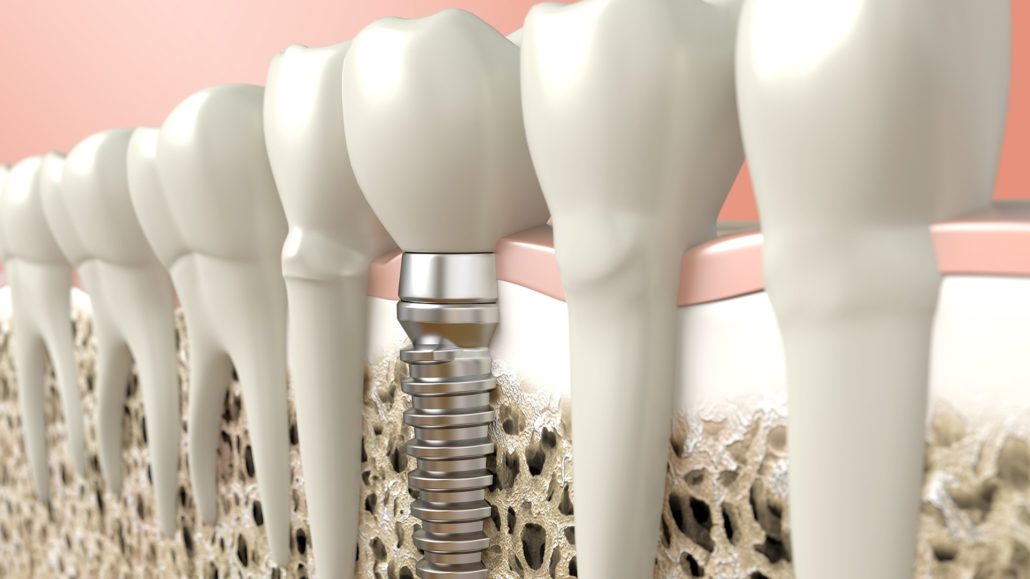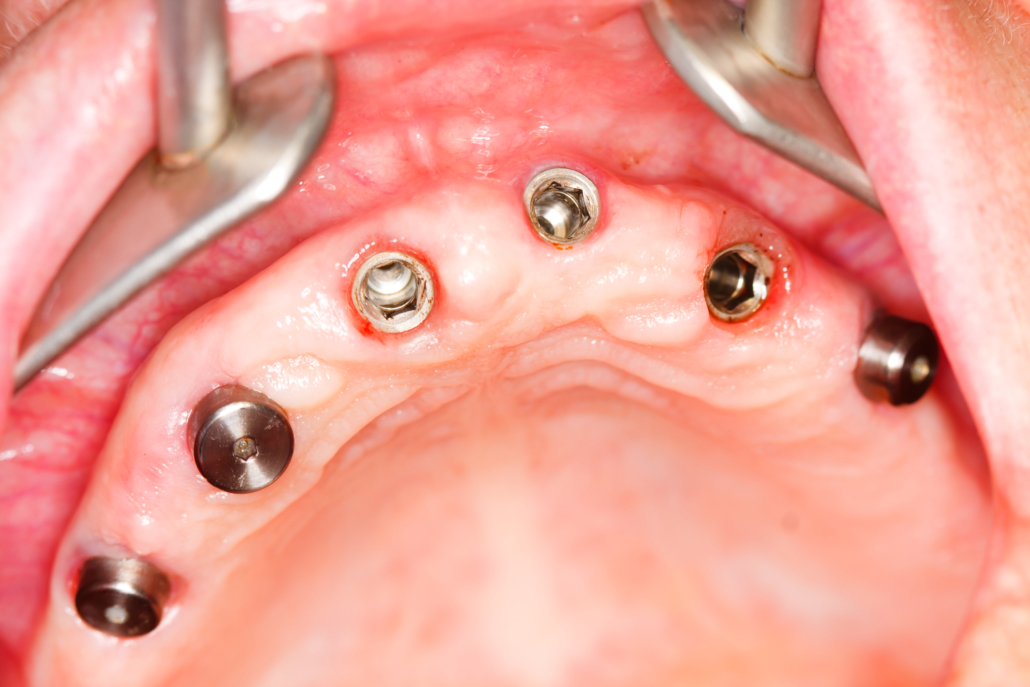Until a few decades ago one of the main contraindications of implantology was bone atrophy, patients with little bone could experience complications, but today thanks to innovative dental techniques on patients with severe bone atrophy extra-short implants can be inserted with very high percentages successfull.
Severe bone atrophies
Severe bone atrophy is mainly due to failure to replace fallen teeth over a long period of time or to dental infections, such as periodontitis, which have caused severe bone resorption.
In implantology, cases of severe bone atrophy are always considered complex clinical cases that can be treated with bone regeneration:
- bone grafts;
- autologous bone reconstruction;
- vertical and / or horizontal bone regeneration.
Or they can be treated with more innovative and simplified techniques such as minimally invasive surgery and the insertion of extra-short implants.
Minimally invasive implantology and extra-short implants
In the medical field and not only in dentistry, minimally invasive surgery is the result of the tendency to have an increasingly conservative approach and guarantees the patient many advantages:
- fewer surgeries;
- better post-operative recovery;
- less morbidity.
Therefore, in the presence of patients with severe bone atrophy both vertically and horizontally, the combined use of several techniques and instruments, such as the insertion of extra-short and at the same time narrow implants, successfully solves complex clinical cases with mixed atrophies. .
Extra-short implants are widely used in implant pain and allow to avoid highly invasive surgical treatments for the patient such as bone reconstruction or sinus lift.
From the success rate of implantology interventions in which extra-short implants are inserted, it is possible to state that this particular type of implant guarantees excellent primary stability
Extra-short implants are therefore a safe solution especially for the rehabilitation of the maxillary and mandibular posterior sectors with long-term survival values of over 98%.
Today dentistry continues to evolve and use surgical techniques that guarantee the patient “pain-free” interventions and with much shorter times than in the past. Implantology is the best solution for those who have lost their teeth: whatever the starting condition of the patient (even in extremely complex cases), in the presence of a competent dentist, highly technological tools and a wide range of implants available, you can always find the right treatment for the specific clinical case.


















